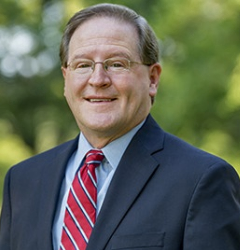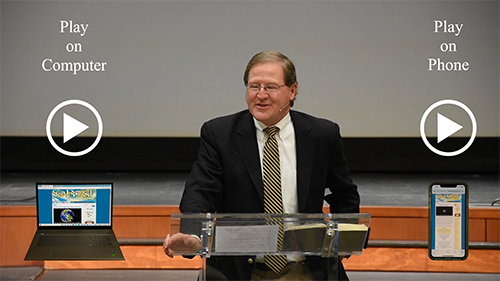
Matthew McKellar
Dr. Matthew McKellar serves as Professor of Preaching and Chair of the Preaching Department in the School of Theology at Southwestern Baptist Theological Seminary in Ft. Worth, Texas. He joined the faculty at Southwestern in 2009 after having served as a senior pastor in Texas churches for 28 years. He is a graduate of Baylor University (B.A. 1982) and Southwestern Seminary (M.Div. 1985 and PhD 1991). His doctoral dissertation focused on the preaching of Dr. W. A. Criswell. Dr. McKellar has written articles for preachingsource.com, the Southwestern Journal of Theology and was a contributor for the book, A Pastor’s Guide to Text-Driven Preaching. A regular presenter at Southwestern preaching workshops, he served as interim pastor in several Texas churches before assuming his teaching role with the Sonburst Class in 2013. Matthew is married to the former Jennifer Jeffress. They have 3 daughters and 9 grandchildren. Matthew is our pastor’s brother-in-law.

For audio of entire lesson above, click on the following: For Who He Is










